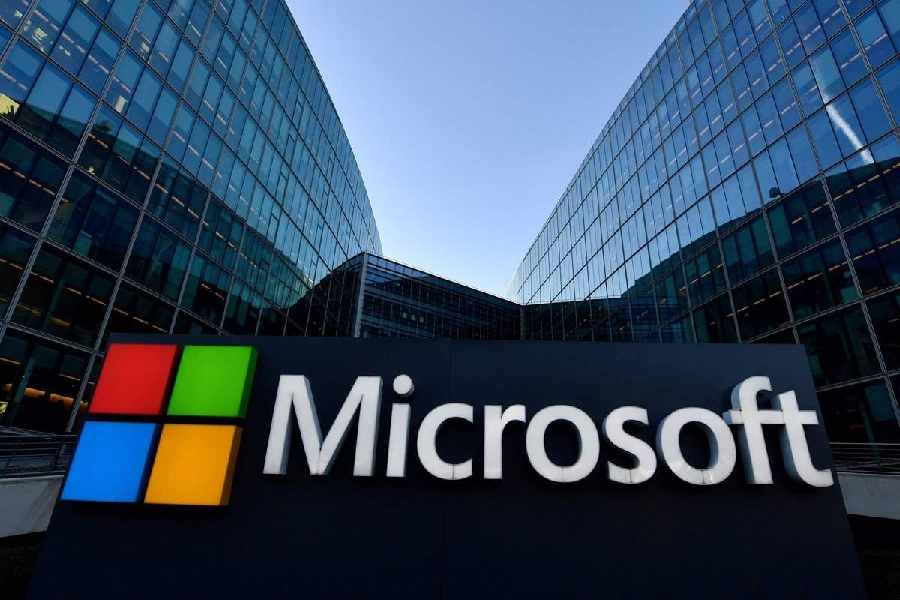Microsoft plans to announce a $1.5 billion investment in G42, an artificial intelligence giant in the United Arab Emirates, in a deal largely orchestrated by the Biden administration to box out China as Washington and Beijing battle over who will exercise technological influence in the Gulf region and beyond.
Under the partnership, Microsoft will give G42 permission to sell Microsoft services that use powerful AI chips, which are used to train and fine-tune generative AI models. In return, G42, which has been under scrutiny by Washington for its ties to China, will use Microsoft’s cloud services and accede to a security arrangement negotiated in detailed conversations with the US government. It places a series of protections on the AI products shared with G42 and includes an agreement to strip Chinese gear out of G42’s operations, among other steps.
“When it comes to emerging technology, you cannot be both in China’s camp and our camp,” said commerce secretary Gina Raimondo, who travelled twice to the UAE to talk about security arrangements for this and other partnerships.
The accord is highly unusual, Microsoft president Brad Smith said in an interview, reflecting the US government’s extraordinary concern about protecting the intellectual property behind AI programmes.
“The US is quite naturally concerned that the most important technology is guarded by a trusted US company,” said Smith, who will take a seat on G42’s board.
The investment could help the US push back against China’s rising influence in the Gulf region. If the moves succeed, G42 would be brought into the US fold and pare back its ties with China. The deal could also become a model for how US firms leverage their technological leadership in AI to lure countries away from Chinese tech while reaping huge financial awards.
But the matter is sensitive, as US officials have raised questions about G42. This year, a congressional committee wrote a letter urging the commerce department to look into whether G42 should be put under trade restrictions for its ties to China, which include partnerships with Chinese firms and employees who came from government-connected companies.
In an interview, Raimondo, who has been at the centre of an effort to prevent China from obtaining the most advanced semiconductors and the equipment to make them, said the agreement “does not authorise the transfer of artificial intelligence, or AI models, or GPUs” — the processors needed to develop AI applications — and “assures those technologies can be safely developed, protected and deployed”.
While the UAE and the US did not sign a separate accord, Raimondo said, “We have been extensively briefed and we are comfortable that this agreement is consistent with our values.” In a statement, Peng Xiao, the group CEO of G42, said that “through Microsoft’s strategic investment, we are advancing our mission to deliver cutting-edge AI technologies at scale”.
The US and China have been racing to exert technological influence in the Gulf, where hundreds of billions of dollars are up for grabs and major investors, including Saudi Arabia, are expected to spend billions on the technology. In the rush to diversify away from oil, many leaders in the region have set their sights on AI — and have been happy to play the US and China off each other.
Although the UAE is an important US diplomatic and intelligence partner, and one of the largest buyers of US weapons, it has increasingly expanded its military and economic ties with China. A portion of its domestic surveillance system is built on Chinese technology and its telecommunications work on hardware from Huawei, a Chinese supplier. That has fed the worries of US officials, who often visit the Persian Gulf nation to discuss security issues.
But US officials are also concerned that the spread of AI technology critical to national security could eventually be used by China or by Chinese government-linked engineers, if not sufficiently guarded. Last month, a US cybersecurity review board sharply criticised Microsoft over a hack in which Chinese attackers gained access to data from top officials. Any leak would go against Biden administration policies that have sought to limit China’s access to cutting-edge technology.
New York Times News Service










